72nd International Short course on Soil & Land Resources for Sustainable Development (SC72)
(11 October 2017 - 3 November 2017 )
Motivation
Water and soils are limited and endangered resources. It is estimated that at least a quarter of the usable earth surface is affected by strong degradation to an extent which is substantially reducing the potential production of biomass for food, feeding as well as for resources for materials and bioenergy. In the context of an ever-growing world population this is a serious threat. While the world population in the past four decades grew from 3 to over 7.4 billion people, the agricultural area increased by only 8%, mainly through the transformation of forest into arable land. Land consumption through urbanization is further reducing the fertile cultivation area. According to climate projections for the coming decades, rainfall patterns and temperature distributions will also change significantly.
Objectives
The participants in this short course will deal intensively with the connections between land use and nutrient cycles in the context of water catchment areas as well as at a global level. They will be enabled to develop concepts for soil and water protection as an integral part of sustainable land management.
In this course, basic soil functions will be discussed initially. Besides the basic understanding of interactions between soil, water and nutrients, material flows are considered at the landscape level and at a global scale and illustrated by means of a practical case study. Thereby, the influence of energy generation and integrated waste management is elucidated. Integrated water resource management and climate strategies in land management are also discussed on the basis of case studies.
Throughout the whole course, a central role is assigned to the dialogue between scientists, political decision-makers and land managers; the aim is to stimulate this dialogue and to encourage the participants to continue and to search for communication between sectors also beyond the duration of the course.
Represented countries of origin in the course:
| Armenia | Cambodia | China | Costa Rica | Egypt | Georgia |
| India | Jamaica | Kazakhstan | Kenya (x2) | Mongolia | Myanmar |
| Nepal | Nigeria (x2) | Peru | Philippines | Rwanda | Sudan |
| Tanzania |
Ms Omnia Ahmed
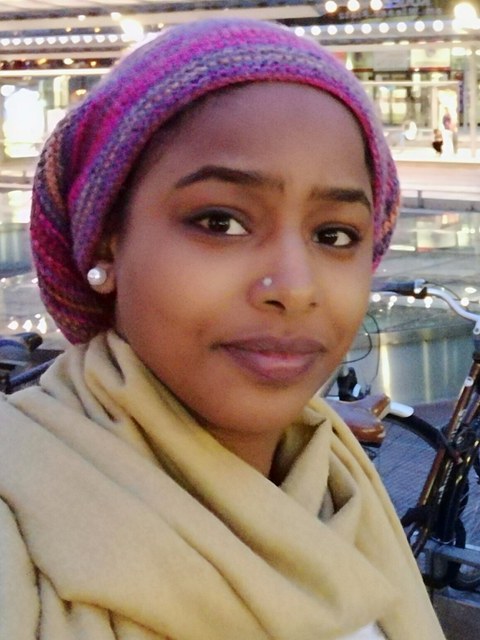
Ms Omnia Ahmed
Country of origin: Sudan
Workfield: Development
Position while attending the course: Project Assistant UNDP, Darfur Office
Academic background: M.Sc. Environmental Studies
Responsibilities:
► For the Project “Strengthening Land Management for Peaceful
Co-Existence in Darfur which intends to address the issue of land in
Darfur, which constitutes a considerable challenge to the Darfur peace
initiatives and paves the way for sustainable development
Profile:
Omnia Ahmed is working as project Assistant in a project aiming to strengthen Land management for peaceful co-existence in Darfur; the project is implemented by the United Nation Development Program in Sudan. She is involved in the support of inclusive research on customary and modern land title system, the collection of land data, the support of implementing partners and the conduction of locality based consultation meetings to reflect their recommendations.
Omnia believes that the UNEP/UNESCO/BMUB short course on soil and land resources for sustainable development has an enormous amount of knowledge, experiences and opportunities for global networking. Therefore, she did not hesitate to apply for the course because she was sure that it will lead to innovative solutions for the ongoing and future challenges.
Since 2014, Omnia has been actively engaged in environmental conservation, awareness and development activities through her work as Program Officer in Almassar Charity organization for environmental conservation, as Coordinator for the international American network WECAN “ Women’s Earth and Climate Action Network”, and as Co-coordinator for the” Environment Day” events which aim to raise the community awareness on environmental issues.
Mr Ibrahim Maikore Ali
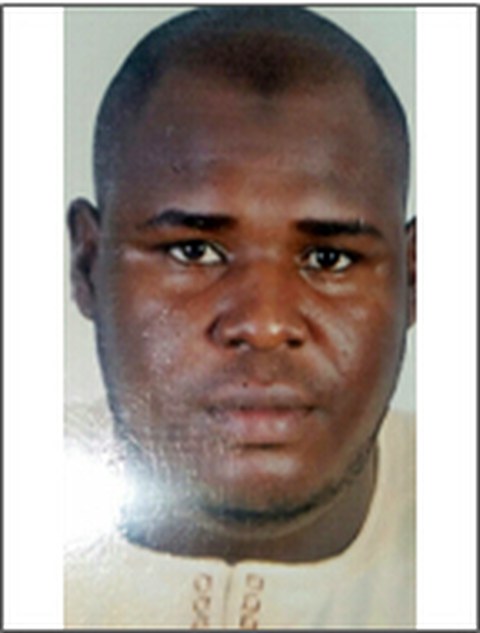
Mr Ibrahim Maikore Ali
Country of origin: Nigeria
Workfield: Fed./nat. administration
Position while attending the course: Forest Officer at Federal Ministry of Environment Abuja
Academic background: B.Sc. in Botany
Responsibilities:
► Strengthing partnership and cooperating with relevant organisations including
research and working hands in hands with UNCCD;
► monitoring and evaluation, land use survey and mapping, land use planning, rangeland management, rural water supply and promotion of arid agricultural practices.
Mr Olalekan Anthony Fatoki
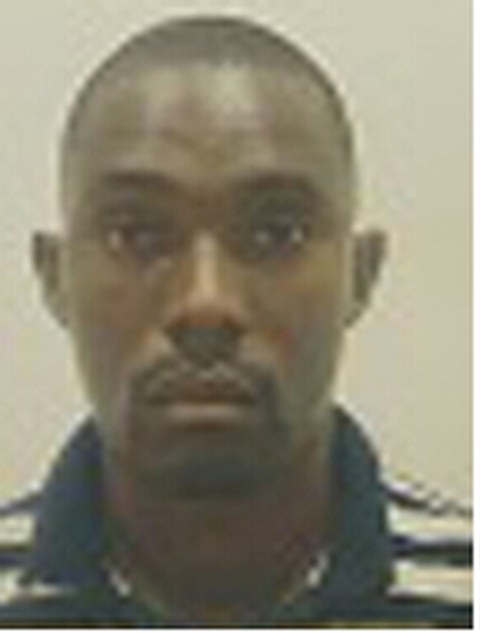
Mr Olalekan Anthony Fatoki
Country of origin: Nigeria
Workfield: Fed./nat. administration
Position while attending the course: Socioeconomic Researcher at Federal Ministry of Environment, Forestry Research Institute of Nigeria, Ibadan
Academic background: M.Sc. Agricultural Economics and Farm Management
Responsibilities:
► Research, extension and community services;
► Conduct socioeconomic analysis of research findings;
► Organising outreach activities to schools
and communities;
► Provide forestry extension services, environmental awareness, advocacy campaigns through media to rural communities
Mr Kishor Aryal
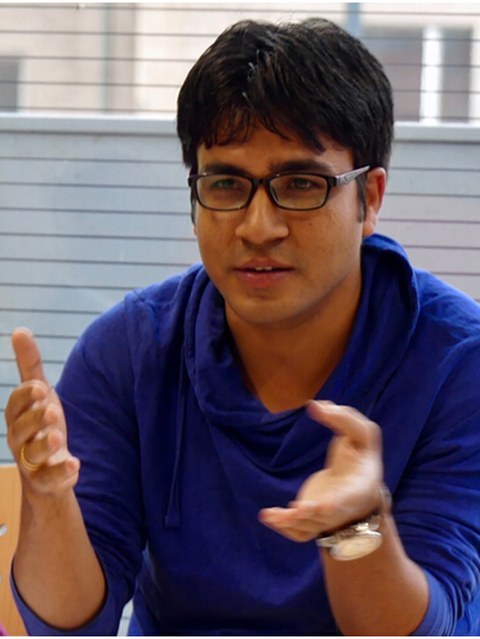
Mr Kishor Aryal
Country of origin: Nepal
Workfield: Forest and Soil Conservation
Position while attending the course: Under-secretary under Ministry of Forests and Soil Conservation
Academic background: M.Sc. Forest and Nature Conservation; MA in Rural Development
Responsibilities:
► Planning and execution of soil and water conservation training for officers and technicians.
Profile:
Kishor Aryal has been working for natural resource management since 2009. Now, he is working as an under-secretary at the Ministry of Forests and Soil Conservation, Nepal. His major responsibilities are planning and implementation of conservation activities such as, addressing slope failure, soil erosion control, water-induced disaster management, and water source protection. Besides, Aryal also works as a guest lecturer in Kathmandu Forestry College in Nepal.
Aryal believes in integrated management of watershed resources at the broader river basin level for sustainable natural resource management and human welfare. Soil and Land resources are the basics for sustaining life of the Earth. Aryal perceives the UNEP/UNESCO/BMUB course as a nice opportunity to get insights on understanding the role of soil and land resources for sustainable development.
Mr Ahmed Abd El- Aziz Awad
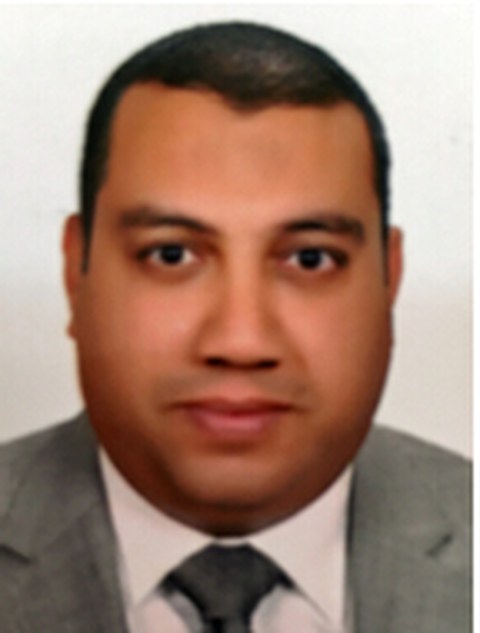
Mr Ahmed Abd El- Aziz Awad
Country of origin: Egypt
Workfield: University
Position while attending the course: Assistant professor at Aswan University, Faculty of Agriculture Department of Agricultural Natural Resources
Academic background: Agricultural Sciences (Ph.D.)
Responsibilities:
► Teaching courses related to soil, plant and water resources
management and related research.
Mr Edwin Antonio Esquivel Segura
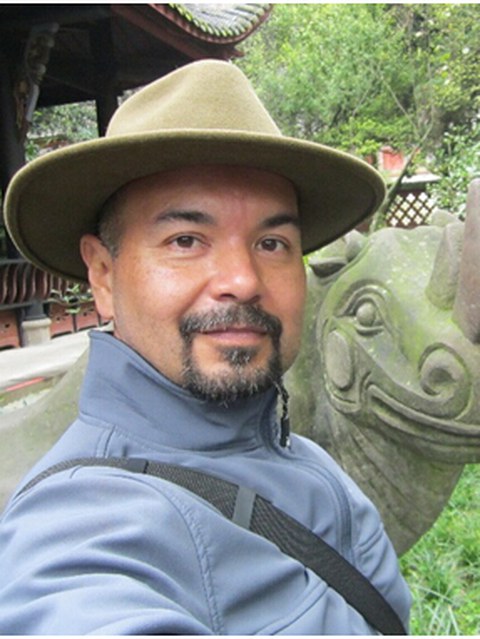
Mr Edwin Antonio Esquivel Segura
Country of origin: Costa Rica
Workfield: Forestry education
Position while attending the course: Professor at Instituto Tecnológico de Costa Rica, Cartago
Academic background: Forest Science (Ph.D.)
Responsibilities:
►Planning and execution of courses in forestry engineering related to soils;
► Research in projects related to sustainability and soil;
► Training of small forest producers in soils;
► Representative of the institution to the
National Commission for Forestry Sustainability.
Profile:
Edwin Antonio Esquivel Segura is working at the TEC (Instituto Tecnológico de Costa Rica, in Spanish) in the Forestry School as a professor in several courses with focus on forestry soils. His research focuses on dendroenergy, improvement of the productivity of forestry plantations by improving the soil conditions, and ecology restauration. Edwin applied for UNEP/UNESCO/BMUB course because he is very interested in the sustainability of soils when used to produce wood or energy. He is furthermore working a part-time at Universidad Nacional de Educación a Distancia. Edwin's active researches at present comprise the Use of cover crops to improve the growth of Teak, the use of bamboo for energy in an abandoned plantation of Guadua, and ecology restauration in a National Park Irazu Volcano.
Ms Claudia Andrea Tapia Arenas
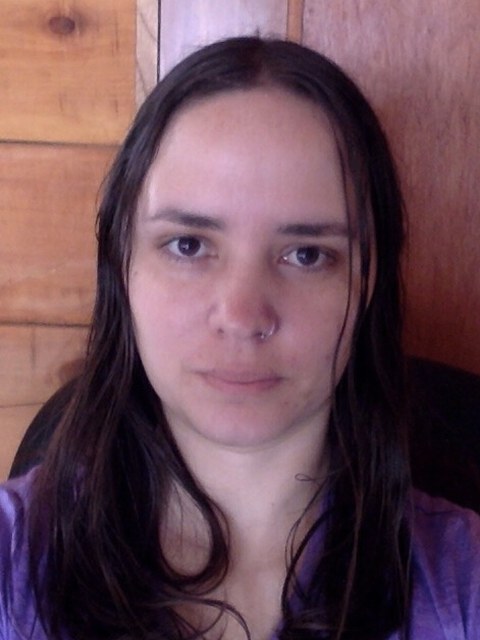
Ms Claudia Andrea Tapia Arenas
Country of origin: Costa Rica
Workfield: Fed./nat. NGO
Position while attending the course: Professor and Researcher at Instituto Tecnológico de Costa Rica Cartago
Academic background: Territorial Planning and Management (MSc.)
Responsibilities:
► Research in the project "Pilot Plan for Ecological Rehabilitation of the
Prussian Sector of the Irazú Volcano National Park", assessing the effects
of changes in the hydrological cycle;
► Determining best techniques
for ecol. restoration based on site characteristics;
► Evaluating effect of the changes in the hydrological cycle;
► Lecturing in a GIS course.
Mr Byambabayar Ganbold
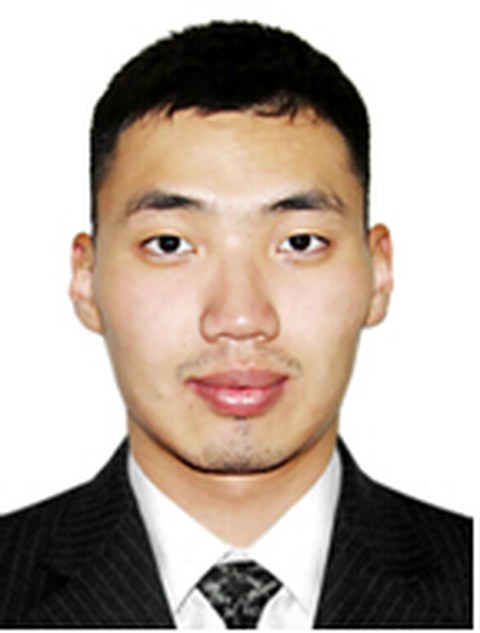
Mr Byambabayar Ganbold
Country of origin: Mongolia
Workfield: Environmental education, soil geogrraphy and general concepts of soil
Position while attending the course: Lecturer at National University of Mongolia, Department of Geography School of Arts and Sciences, Ulaanbaatar
Academic background: M.Sc. Geography
Responsibilities:
► Survey on soil biological remediation.
Profile:
Byambabayar Ganbold is working as a lecturer and project assistant at the Department of Geography, Branch of Natural Sciences, School of Sciences and Arts, National University of Mongolia. After his bachelor degree in Geography in India he graduated with a M.Sc degree in Soil Geography in Mongolia. His thesis work was about estimating soil loss, soil degradation caused by off-road vehicles with respect to the soil characteristics and soil textures. Since his graduation, Byambabayar has been involved in the coordination of activities on geography, mostly soil protection and remediation management. He also works on issues related to the soil loss, soil bio-remediation, protection and soil pollution especially heavy metals in the soil, taking action on treating or removing such heavy elements in the soil and is also responsible for doing any soil related research on the specific area which is polluted, contaminated as well as degraded at different levels in terms of processing new idea to save the soil healthy.
In this context, the Byambabayar rates the UNEP/UNESCO/BMUB programm as the best opportunity for him to deepen his knowledge on modern nature conservation approaches, governance and conservation economics as well as to improve his skills for facilitating complex discussions. In the last years, Byambabayar has been actively engaged in the Mongolia and Japan joint research on mapping of soil degraded area by vehicles in Mongolia.
Mr Chandath Him
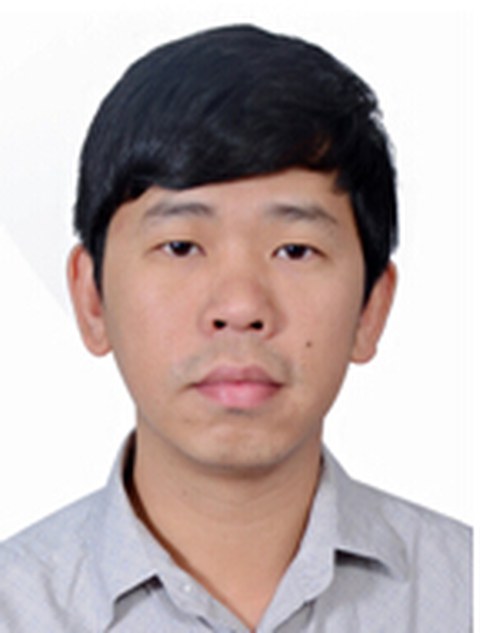
Mr Chandath Him
Country of origin: Cambodia
Workfield: Government Officer
Position while attending the course: Deputy Director, Dept. of Water Quality Management at Ministry of Environment in Cambodia, Gen. Directorate of Envtl. Protection, Phnom Penh
Academic background: Environment (M.Sc.)
Responsibilities:
► Preparing public water quality management plans;
► managing and inspecting environmental pollution sources;
► providing technical advise to officers;
► preparing policy documents, management frameworks and action plans for water quality management.
Profile:
Chandath Him is deputy director of the department of water quality management at the Ministry of Environment in Cambodia. After graduating with a Master Degree in Environment. Regarding my working experience, he gained more than 7 years of working experience in the field of environmental pollution control and environmental and social impact assessment. Chandath felt very pleased to be awarded with a fellowship for the UNEP/UNESCO/BMUB course on Soil and Land Resources for Sustainable Development. He believes that the opportunity to attend this program will benefit to both his community and his long-term career goals because this program will provide a great chance to bridge his knowledge gap on soil related to water quality management and to buildup the professional network with other international participants.
Mr Paul Mathaiya Kahiga
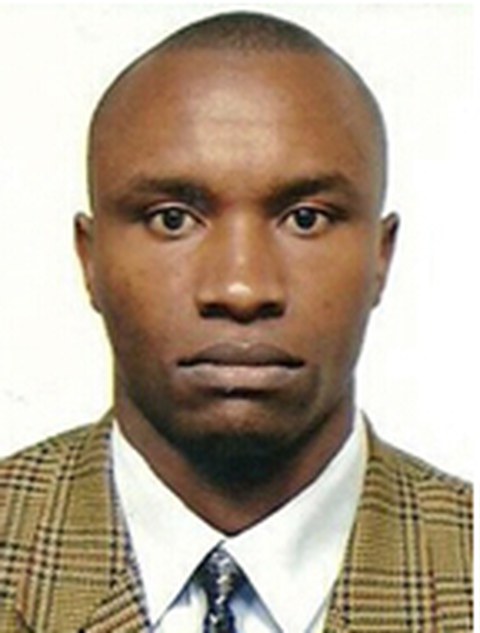
Mr Paul Mathaiya Kahiga
Country of origin: Kenya
Workfield: Agricultural and Environmental Engineering (soil, water and Environment)
Position while attending the course: Senior Technologist at Jomo Kenyatta University of Agriculture and Technology (JKUAT) Soil, Water and Environmental Engineering Department (SWEED), Nairobi
Academic background: M.Sc. in Environmental Engineering and Management
Responsibilities:
► Soil mechanics laboratory in the soil, water and environmental engineering department (SWEED).
Profile:
Paul Mathaiya Kahiga is a senior technologist in charge of the soil mechanics/physics laboratory in the Soil, Water and Environmental Engineering Department and lecturer of Irrigation and Drainage Systems Design and Management at the Jomo Kenyatta University of Agriculture and Technology. He furthermore works as an Environmental Impact Assessment and Audit expert and a registered Graduate Engineer with the Engineer’s Board of Kenya. Paul's main areas of research include sustainable land management in agricultural ecosystems and restoration of degraded lands. It is against this background that this fellowship programme is very important to enhance his skills in soil and land resource management from the global perspective. Paul has worked in the Upper Tana Catchment and developed a decision support (MATSIM) tool for selecting sustainable land management technologies within the catchment and is furthermore formulating an erosion susceptibility and risk assessment study in the Upper Tana Catchment.
Ms Teresia Wangeci Kariuki
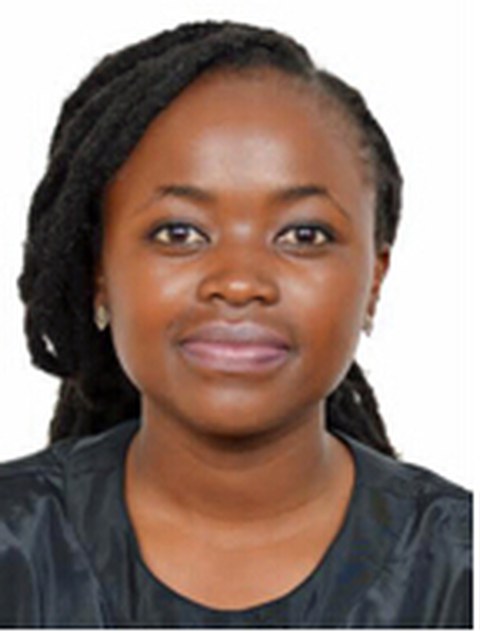
Ms Teresia Wangeci Kariuki
Country of origin: Kenya
Workfield: Reg. company
Position while attending the course: Agricultural Systems Auditor at Africert Limited Nairobi
Academic background: B.Sc. in Environmental Science
Responsibilities:
► Assist the small holder and estates in achieving certification to ensure competitiveness in the world market as well as sustainable agriculture and improved social and economic welfare for smallholder farmers and workers.
Profile:
Teresia Wangeci Kariuki is working as an agricultural systems auditor/specialist with an agribusiness company called Africert Limited in Nairobi, Kenya. She is tasked with assisting smallholders and large estates to achieve certification to ensure they are competitive in the world market and also ensuring sustainable agriculture as well as improved social and economic welfare for smallholder farmers and workers. Teresia has worked with smallholders from various African countries namely Kenya, Tanzania, Malawi, Burundi, Rwanda, Zambia and Zimbabwe in certification against the sustainable agriculture standards (SAS).
The UNEP/UNESCO/BMUB course, soil and land resources for sustainable development in her oppinion offers the opportunity to broaden and develop her skills as an environmental scientist. She is an advocate for knowledge transfer and use of the bottoms up approach in achieving sustainability. She believes this course will not only equip her with technical knowledge but also means of passing it down.
Ms Maka Manjavidze
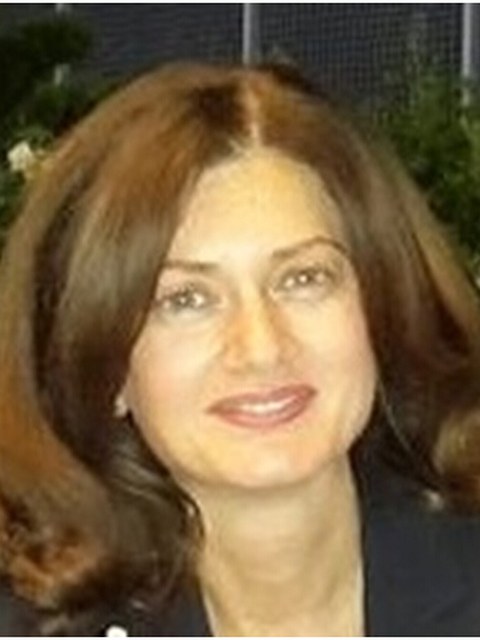
Ms Maka Manjavidze
Country of origin: Georgia
Workfield: Environmental Policy
Position while attending the course: Chief Specialist of Land Resources Protection and Mineral Resources Division of the Ministry of Environment and Natural Resources Protection of Georgia
Academic background: M.Sc. in Environmental Science and Policy
Responsibilities:
►Participation in the process of land protection policies;
► Preparation legal documentations;
► International project proposal preparation in the field of land resources management.
Profile:
Maka Manjavidze is working at the Ministry of Environment and Natural Resources Protection of Georgia as a chief specialist in the Land Resources Protection and Mineral Resources Division. One of the most important goals of the Ministry is to support sustainable development of the country in the field of environmental protection.
Maka's duties at the Ministry are participation in the process of elaboration land protection policies of the country, legal documentations and international project proposal preparation in the field of land resources management and protection. As her former job field was Geo Information Systems (GIS), in the Ministry she is also dealing with processing and mapping data regarding land contamination. Maka is involved in the process of monitoring and implementation of the United Nations Convention to Combat Desertification and is a national consultant of UNCCD LDN target Setting Program.
Land degradation is an important issue in Georgia. Overgrazing, loss of forest cover and unplanned urban sprawl are major causes of land degradation. Also climate change, in conjunction with the man-induced factors, may accelerate the degradation of land resources. Solution of this complicated situation is to achieve the best possible land-use through optimal sustainable management of land resources. Maka hopes to obtain knowledge in these these issues and skills from the UNEP/UNESCO/BMUB course.
Ms Pamella McKenzie
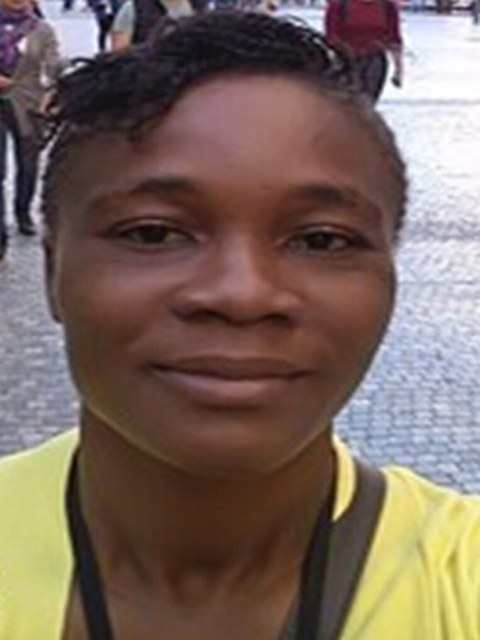
Ms Pamella McKenzie
Country of origin: Jamaica
Workfield: Agricultural Land Management
Position while attending the course: Regional Land Capability Planner at Agricultural Land Management Division
Kingston
Academic background: M.Sc. Plant Production and Protection
Responsibilities:
► Land use planning - preparing land capability studies for clients;
► Evaluation of soil fertility for making recommendations to sustain soil health and crop production;
► protection of agricultural lands from change of use or degradation;
► subdivision inspections.
Profile:
Pamella McKenzie is currently working as a Regional Land Capability Planner, at the Agricultural Land Management Division within the Ministry of Industry Commerce Agriculture and Fisheries(MICAF). Responsibilities of the job include among others the inspection of subdivision/change of land use requests and of quarry sites to determine if an application for license can be recommended. Further duties are sample collection of soil water and plant tissues, report preparation, training of farmers and the participation in joint research activities.
Pamella applied for the CIPSEM course because the training opportunity in Soil and Land Resources for Sustainable Development is ideal for her department as it is endeavoring to ensure the limited land resources on Jamaica is managed in the most sustainable way. Also this training opportunity would enhance her practical experience in her field of work. Pamella expected from the course to be introduced to strategies that encourage sustainable development, to practical solutions addressing the issues surrounding land use, and to be able to develop regional partnerships with other participants with similar challenges as it relates to land use, with the objective of working together to develop solutions. Currently she is working in collaboration with Inter-American Institute for Cooperation on agriculture, in a project using organic matter to reclaim mined out lands (bauxite ore bodies) in Jamaica.
Mr Davit Mejlumyan
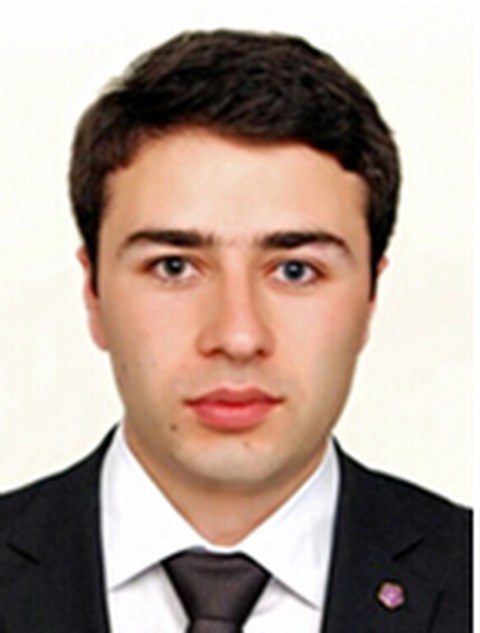
Mr Davit Mejlumyan
Country of origin: Armenia
Workfield: Ministry of Agriculture
Position while attending the course: Head of Melioration Division of Land Use and Melioration Department, Ministry of Agriculture of the Republic of Armenia
Academic background: Agriculture (Ph.D.)
Responsibilities:
► Raising efficiency (improvement) of using RA agricultural lands and melioration;
► Development of activities for irrigation projects, as well as activities for preventing and eliminating harmful effects of river waters and monitoring of such projects;
► Working out and submission of proposals for desalination and reclaiming of Ararat valley secondary saline soils and alkalized plots.
Profile:
Davit Mejlumyan is working as Head of the Melioration Division of Land Use and Melioration Department at the Ministry of Agriculture of the Republic of Armenia. Before he was working in the Ministry of Nature Protection of the Republic of Armenia as a leading specialist of Water Cadastre and Monitoring Division of Water Resources Management Agency and as a first category specialist of Hazardous Substances and Waste Policy Division.
Davit's main responsibilities are among others raising efficiency of using RA agricultural lands and melioration, the development of activities for irrigation projects, as well as activities for preventing and eliminating harmful effects of the river waters and monitoring of such projects, and the elaboration and submission of proposals for desalination and reclamation of Ararat valley secondary saline soils and alkalized plots.
Davit considers the UNEP/UNESCO/BMUB course to help him not only in the improvement of his professional skills but also as a contribution in his further scientific works. He also appreciates the exchange experience with new acquaintances and contacts, which will allow him to create new connections with international experts and researchers from different countries.
In his earlier career Davit has been awarded a PhD in 2016 “Methods of Land Management Organization Improvement of Perennial Plantations in the Conditions of Pre-Mountain Zone of Armenia”. Furthermore he was successfully engaged in coordination of field works of bioengineering measures and facilitation of participatory discussions on environmental topics conducted by “ESAC” NGO within the scope of the GIZ project “Integrated erosion control in mountainous regions of the South Caucasus.
Ms Esperance Mujawamariya
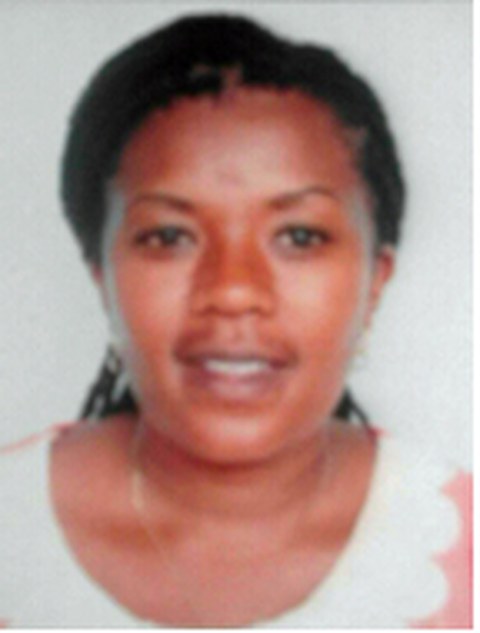
Ms Esperance Mujawamariya
Country of origin: Rwanda
Workfield: Fed./nat. administration
Position while attending the course: Land Husbandry Technician at Rwanda Agriculture Board Kigali
Academic background: Agroforestry (B.Sc.)
Responsibilities:
► Assisting farmers in making radical terracing and better soil management practices to maintain fertility and control soil erosion.
Mr Raya Joseph Amara Nundu
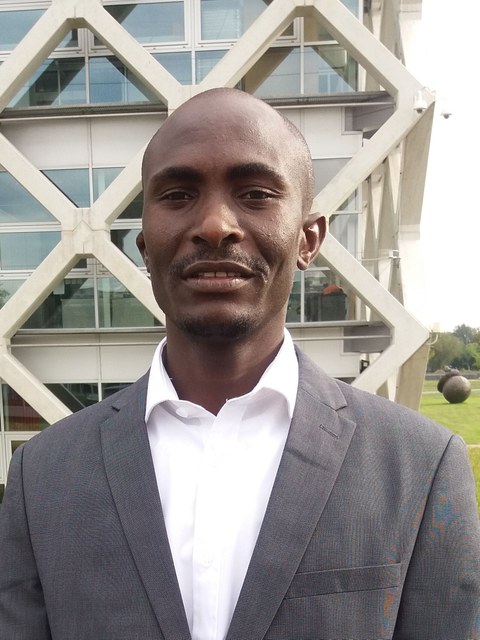
Mr Raya Joseph Amara Nundu
Country of origin: Tanzania
Workfield: Agriculture
Position while attending the course: Agricultural Officer at Meatu District Council Mwanhuzi, Meatu-Simiyu
Academic background: Plant Science-Natural Resource Management (M.Sc.)
Responsibilities:
► Managing all agricultural activities and soil and water catchment areas' conservation under Lake Victoria Environmental Management Project
(LVEMP II) in Meatu District Council;
► Training extension officers on good
agricultural practices that are friendly to the environment (soil & water sources).
Profile:
Raya Joseph Amara Nundu is working as Agricultural Officer in Meatu District Council under the Department of Agriculture, Irrigation and Cooperatives. He is training agricultural Field Officers and farmers on good agricultural practices (GAP) through on-farm trainings and famer field schools (FFS). He also provides technical advice on soil and land resources management and horticulture to the related projects conducted within the district. Following his longtime interest in agricultural research, he is currently in a transition to join the agricultural research institute.
Raya applied for UNEP/UNESCO/BMUB course programme due to his curiosity to improve his skills and knowledge on soil and land resources management for sustainable development and based on his conviction of agriculture depending on soil and land resources in all ways as even soilless culture and hydroponics still require land for the construction of greenhouses/glasshouses.
In earlier years, Raya has been awarded a MSc Fellowship by the Netherlands Fellowship Programme (NFP)/Nuffic for 2014-16 academic years in Wageningen University and Research, the Netherlands. He also fully participated in the implementation of Lake Victoria Environmental Management Project phase two (LVEMP II) as a Meatu district horticulturist.
Ms Monica Rivera Neciosup
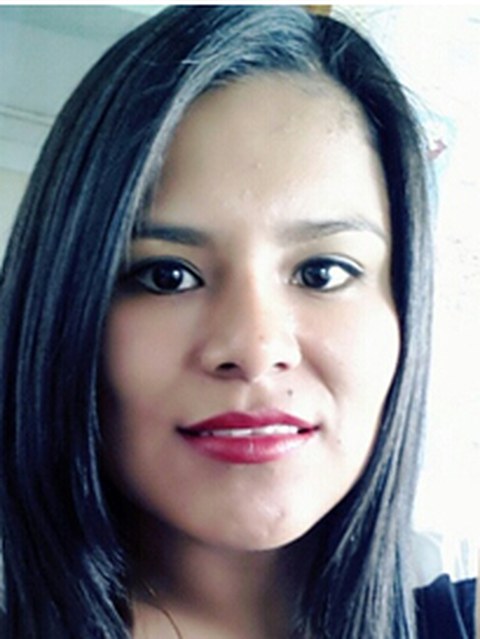
Ms Monica Rivera Neciosup
Country of origin: Peru
Workfield: Soil , Land and Biodiversity Conservation
Position while attending the course: Coordinator of the Assessment Area of Environmental Management Instruments at Ministry of Agriculture and Irrigation
Academic background: Environmental Pollution (B.Sc.)
Responsibilities:
► Coordinator of the evaluation area of environmental management
instruments of other productive sectors.
Profile:
Monica Rivera Neciosup works as Coordinator of the Assessment Area of Environmental Management Instruments of the different Productive Sectors of the Ministry of Agriculture and Irrigation.
Her main functions are: Protect the soil and land resource, as well as the flora and fauna in front of the development of the different projects in areas related to mining, energy, industrial production, etc. using national and international technical and legal tools. Monica also trains local, regional and national government authorities and farmers through field school methodologies within the framework and monitors the environmental commitments of the Agricultural Projects.
She has worked as an analyst of technical files for the registration of chemical products for agricultural use, participating in the program "Reduction of the Degradation of Agricultural Soils" on the Use and Management of Chemical Pesticides for Agricultural Use and their Environmental Risks.
In Monica’s opinion Peru is going through a great problem of soil degradation, which is why it has been carrying out different tasks such as territorial zoning, soil, land and biodiversity recovery programs, for its conservation and sustainable management, as well as constant training for farmers for a better use and management of the soil resource.
In this context, Monica believes that the UNEP/UNESCO/BMUB short course on soil and land resources for sustainable development was a great opportunity to increase her knowledge and create networks of experts, with the aim of improving the decision making for the benefit of her country and future personal challenges.
Ms Rochelle Joie Saracanlao
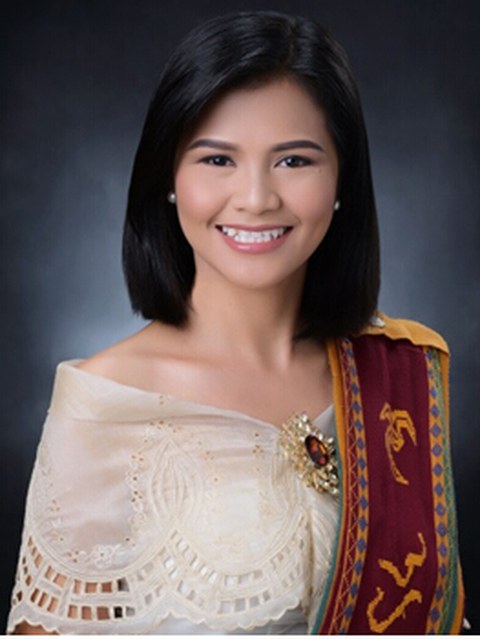
Ms Rochelle Joie Saracanlao
Country of origin: Philippines
Workfield: Soil Analysis
Position while attending the course: Soil Chemist at Division of Soil Science, Agricultural Systems Institute College of Agriculture and Food Science, Los Baños, Laguna
Academic background: Soil Science (M.Sc.)
Responsibilities:
► Preparing solutions for soil test kits for qualitative assessment of soils
in terms of N, P, K and pH levels;
► evaluating results of soil analysis
(N, P, K, trace element, etc) before formal release to clients;
► Analyzing soils and plant tissues.
Profile:
Rochelle Joie Saracanlao is currently working as a soil chemist at the Division of Soil Science, the University of the Philippines Los Baños and will soon be appointed as an Assistant Professor at the same division. Her main task is to teach soil chemistry courses to both undergraduate and graduate students. Rochelle applied for the UNEP/UNESCO/BMUB short course on soil and land resources for sustainable development to deliver improved lectures encompassing soils from a local and global perspective. In addition, she appreciates the opportunity to learn from the discussions and from her fellows what were the legal, institutional and civilian measures done to address issues in soil and land resources in their country. With such linkages, Rochelle is hopeful that she can also do research with her fellow participants someday and through collective efforts the goal of ensuring food in every table, clean and safe water and mitigating climate change is becoming more of a possibility.
In former years, Rochelle was awarded as one of the Academic Excellence Awardees during the commencement exercises for her Master’s degree. Furthermore she received the Best Oral Presenter Award during the International Conference on Sustainable Soil Management held at Bintulu, Sarawak, Malaysia in April 2017.
Ms Richa Srivastava
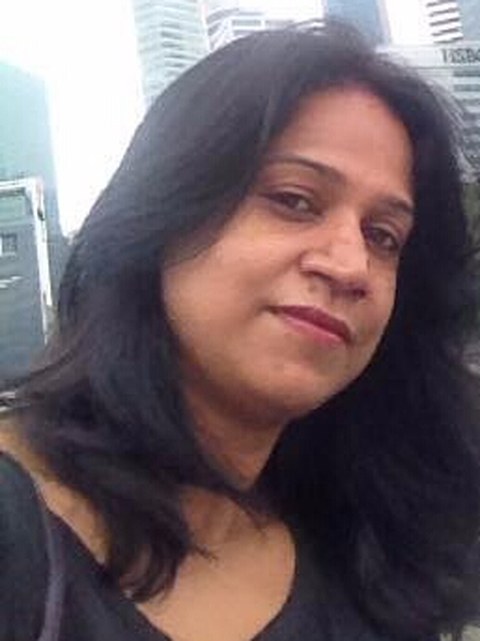
Ms Richa Srivastava
Country of origin: India
Workfield: Capacity building and outreach in the field of environment, climate change and agriculture
Position while attending the course: Program Coordinator at Gene Campaign
New Delhi
Academic background: Environmental Science (M.Sc.)
Responsibilities:
► Coordinating projects on agro-biodiversity management;
► planning and implementing training programmes for farming communities on diversification of agriculture and livelihoods activities;
► climate smart agriculture;
► facilitating dialogue among Women Self Help Groups.
Profile:
Richa Srivastava works as programme coordinator with the Delhi-based NGO—Gene Campaign. Her primary responsibilities include the coordination of projects on natural resources and agro-biodiversity management in the Indian states of Uttarakhand (a central Himalayan State) and Jharkhand (semi-arid tribal dominated region in eastern part) and the implementation of training programmes for farmers with focus on climate resilient agriculture, crop diversification and alternate livelihood activities. Gene Campaign’s work primarily focuses on improving household food and nutrition security, agro-biodiversity conservation, community seed banks as well as capacity building and policy advocacy.
For Richa, the UNEP/UNESCO/BMUB short course at TU Dresden was a great opportunity to strengthen her understanding about multiple aspects of soil/land management, governance issues as well as to improve her skills to facilitate complex discussions on the theme. It also provided her with the opportunity to learn from experiences and perspectives across the globe: from the peer group, and also the strong faculty at TU Dresden and visiting institutions.
Previously, Richa was awarded the prestigious Netherlands Master Fellowship Program (NUFFIC) at Wageningen University in The Netherlands. She has co-authored a report on “Impact of Climate Change on Agriculture & Food Security” (2012) published by the Indian Council for Research on International Economic Relations. She furthermore contributed to the book on “Coping with Climate Change” (2014) published with support by the Heinrich Böll Stiftung and managed the quarterly magazine "Gene News".
Ms Swe Swe Tun
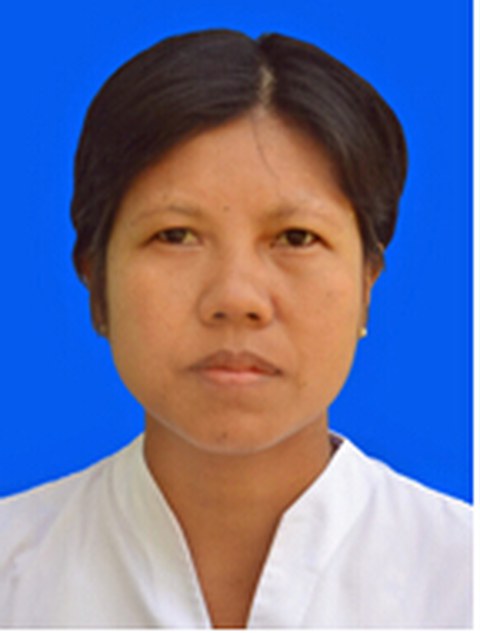
Ms Swe Swe Tun
Country of origin: Myanmar
Workfield: Soil and Water Conservation
Position while attending the course: Research Officer at Forest Research Institute Yezin, Nay Pyi Taw
Academic background: Forest Soil (M.Sc.)
Responsibilities:
►Soil conservation research in abandoned shifting cultivations in watershed areas in Myanmar;
► Land use and land cover classification, slope classification;
► Research in assessment of soil erosion, soil sample collection and soil properties and on soil and water quality assessments in mining areas;
► Nutritional analysis on plant and soil.
Profile:
Swe Swe Tun is a researcher concerned with soil conservation in abandoned shifting cultivations in Bago Yoma (east and west) watershed areas in Myanmar. Land use and land cover classification, slope classification, assessment of soil erosion, soil sample collection and soil properties analysis are conducted in these areas. She has analyzed physical and chemical properties of soil for the establishment of special teak plantations, dry zone plantations and private owned plantations to recommend land reclamation and fertilizer application. Classifications of soils in various forest types are also conducted. Compost making and EM fertilizer (effective micro organism) making with minor forest products (especially bat guano and saw dust) have been conducted and applied in different kinds of plantations. Swe Swe is also experienced in fertilizer application research in woody oil plantations to increase soil fertility for long term productivity of oil plantations. Furthermore, she participated in a REDD plus project in soil carbon measurements in the Bago Yoma region where she analyzed plant water potential, plant osmotic potential and soil water potential of drought resistant tree species in dry zone plantations for site species selection for dry zone area.
Mr Wei Yanchang
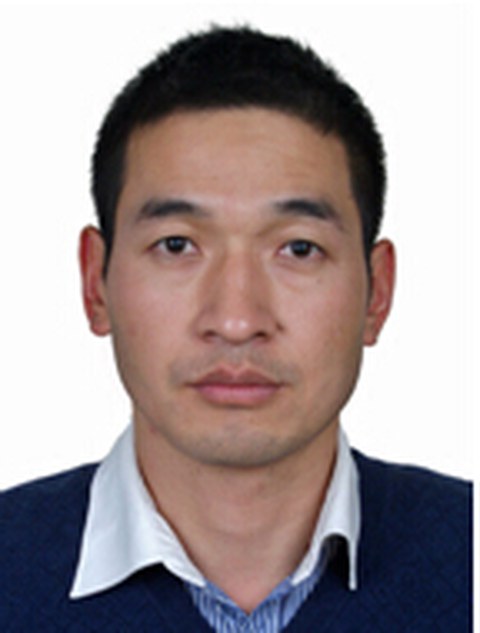
Mr Wei Yanchang
Country of origin: China
Workfield: Fed./nat. administration
Position while attending the course: Deputy Director at Ministry of Environmental Protection Xicheng District, Beijing
Academic background: Ecology (Ph.D.)
Responsibilities:
► Soil environmental management.
Profile:
Wei Yanchang is mainly responsible for formulating soil environmental management policies, planning, laws, administrative regulations, departmental rules, regulations, standards and norms; he undertakes the work of soil pollution prevention and control; carries out calculation of environmental capacity and assessment of soil environmental carrying capacity; shoulders the discharge permit, the total amount control, emissions trading of soil pollutants.
At present, Yanchang mainly implements the tasks and measures to put forward the Action Plan for Soil Pollution Prevention and Control in China. Yanchang's intention for participating in the UNEP/UNESCO/BMUB course programm was to learn about the legal system, policy measures and standards in soil pollution prevention and control in Germany, the European Union or other countries represented in the course.
Mr Valeyev Adilet Galikanovich
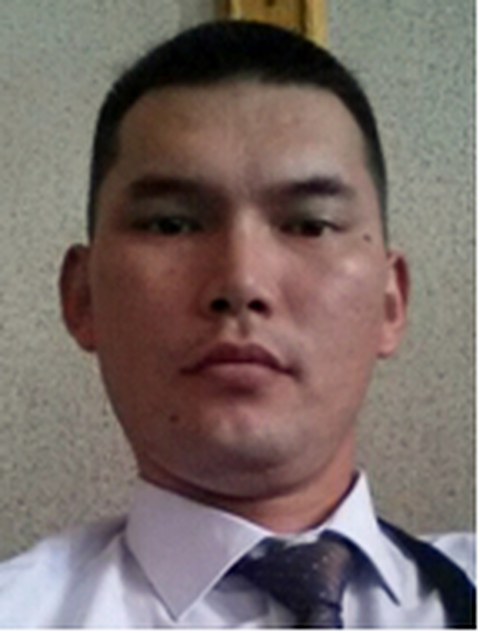
Mr Valeyev Adilet Galikanovich
Country of origin: Kazakhstan
Workfield: Fed./nat. administration
Position while attending the course: PhD student in the second year at the Kazakh National Technical
Research University “Satpayev” in Almaty, Kazakhstan.
Academic background: Ecology (M.Sc.)
Responsibilities:
► The major field of study is "Ecology". Working at the Institute of Geography
at the laboratory for geomorphological mapping and GIS. Thesis topic:
"The processes of relief formation of the coastal zone of lake Alakol and
their impact on the natural and economic system of the coast"
